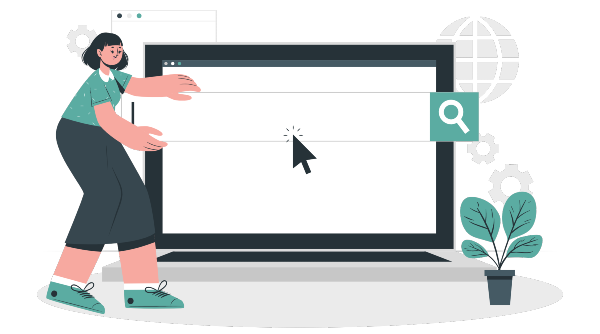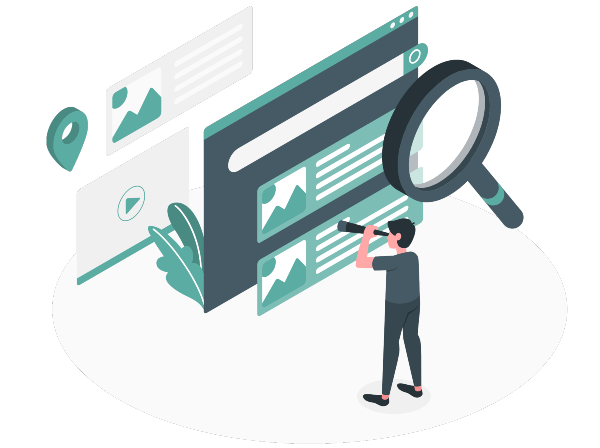Deciding to start an online business or simply having a web page is just the first step in achieving success in the virtual world.

What do we do to make our site visible on the Web? – That’s the question that crosses our minds after we realize that only maintaining the page is not enough.
Yes, when it comes to the online environment, you have to work on making yourself heard and seen.
What is your web page about? What do you intend to tell people about it? – Let’s start with these questions before going deeper into the subject.
What is On-Page SEO and why is it so important?
I am sure you’ve heard many times now about SEO: Build a strong SEO for your website, and follow the rules for having a good SEO – these are just some of the headlines you can read on the internet when you are looking into this topic.
Well, namely because of this, I will not talk very much about SEO, but I will just remind you, before going further, that SEO is the way you optimize your website to reach a good position in the search engines. How do you do this? Through the main components of SEO: On-page and Off-page SEO.

Let’s begin with On-Page SEO, which is one of the most important aspects of getting good traffic on search engines, thus becoming more known and popular. Although it’s important not underestimate the role of Off-Page SEO, which is also a vital task for achieving success in the online environment.
Well, On-Page SEO refers mostly to the content of the page and the HTML source code, which can be viewed by users of all internet browsers, but also keywords, titles, title tags, and Meta descriptions. Let’s take them one by one.

The content is “saint.”
The content of a website can be defined simply as the information you provide to the users. The goal of this information is, of course, to increase your traffic through search engines. In other words, the more valuable the content is, the more visitors you’ll attract.
But how do we write that valuable content? Or how do we make it valuable for people?
Well, when we are talking about the content, we don’t only refer to the articles and blog posts, but also the product pages, the videos, the infographics, slideshows, etc. Before the fact that you should know what your target audience is, you should also know what particular need your content is meant to satisfy. What impact does your website have in the online world?
Also, it’s important to know that the way you use your words, phrases, headlines, sentences, and everything has an impact. If you have a goal in mind, then tying a call-to-action in your message is helpful.

But besides that, there are also some technical aspects that you should take into account when creating the content for your website. Here are some of them:
Meta tags
Let me ask you a question first: Do you take the word “tag” seriously in the management of your website? If your answer is “No”, then our advice is to change something because - directly or indirectly - the tags you are using define your web page from a search engine’s point of view.
For example, title tags - meant to concretize the title of your web page – play a significant role in the results a user gets when looking for something in the search engines.
Title tags appear just as a result of someone’s search.
That’s why the way it is written plays an important role in the traffic your website will get.
But how do you write a title tag?
There are no set-in-stone rules for it, and the style can differ a lot from one site to another, depending on what it's about, but there is some useful information that we can find. A Title Tag of a page has to represent a brief and definite description of the page’s content. It should be descriptive, but not a duplicate of the content on the page. Its length should not exceed 70 characters, to make it clear for users who want to click on it - in other words, a short and conclusive summary.
The Meta description is also an important HTML element, which describes your web page content.

It appears under the URL of the page when looking through the search engine results, but it also appears when people share your content on social networks. To be clear and visible in the search engines, the Meta description should not exceed 160 characters, even though there is no issue if it is shorter. Sometimes, having a shorter message delivers the information in a better way.
Why does it matter, and why should we pay so much attention to it? Well, being the first description of our content, it has to catch the attention of the reader; the Meta description of your web page can contribute to giving the user the first impression of whether your web page is worth checking out or not.

And finally, let’s approach the topic of the keyword.
Even though the keywords seem to be the primary source of driving traffic to a specific URL of a web page, what’s more important is the fact that Google, one of the world’s greatest search engines, is looking more into the meaning, rather than some specific words.
When choosing the right keyword and when you’re building links, it’s important to keep in mind that this work is time-consuming and sometimes very hard. To ease your work, you can use this tool – Linkio.com, which can be a huge time saver and also will automate your process and give you the exact link-building game plan for any target website.
You may think this happens because Google became too sophisticated, but you must also consider that it can be far more important to optimize your web page in such a way that it contains a specific meaning rather than a particular phrase, which characterizes it.
What is my point in telling this? Don’t focus too much on keywords and direct that effort into creating high-quality content. As simple as that!
The last aspects of On-Page SEO, but not the least important, are the speed and security of your website. How fast is it loading? How safe is it to navigate through it or even visit it?

Using all these tools we described above can be of great importance, but the most important factor is the relationship we are creating with the users.
A user who visited your website once and found it interesting will come back again.
